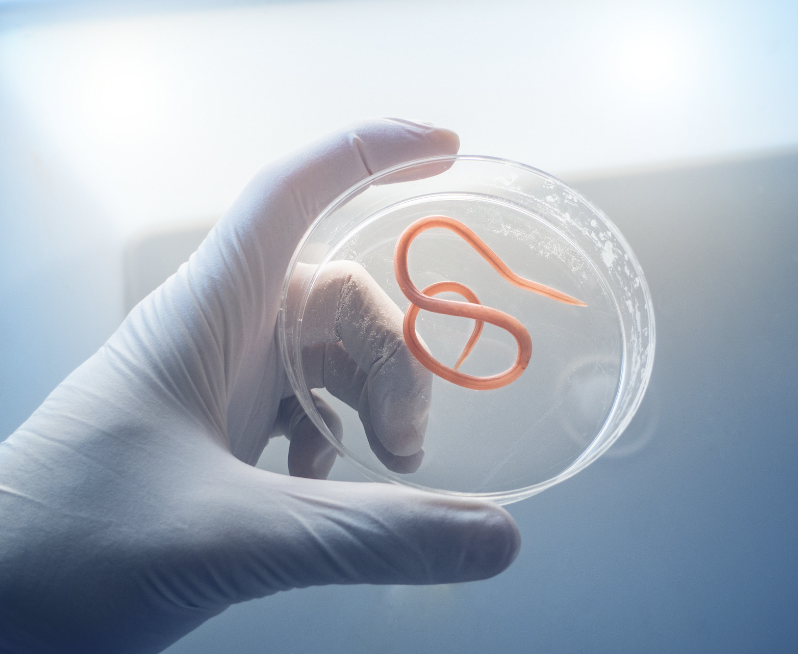
Private Health: In-Villa Testing for STD’s In Bali
Private Health: In-Villa Testing for STD’s in Bali The Need for Discreet, Professional STD Testing in Bali Bali is globally

Hey there, wellness fanatics, travel junkies, and Bali expats – let’s have a real talk about those uninvited guests in your gut that can turn your tropical dream into a bit of a nightmare. I’m talking about stomach parasites, the microscopic critters that somehow find their way into our bodies, typically through our mouths and the delectable local cuisine we just can’t get enough of.
Look, I get it – you come to Bali for the vibrant food scene, the stunning beaches, the adorable street puppies (who, by the way, can also harbor some not-so-cute parasites). But unfortunately, those tummy troubles that have you running for the bathroom every other hour aren’t just limited to the infamous “Bali Belly.” Nope, we’ve got a whole zoo of parasitic fiends just waiting to hitch a ride and make your life miserable.
From the infamous giardia to the eternally-evolving amoeba, these little guys can cause some seriously unpleasant symptoms – think persistent diarrhea, debilitating cramps, nauseating bloating, and the kind of fatigue that has you giving up on that sunrise yoga session. And the worst part? They can linger for weeks, months, even years if left untreated. Not exactly the Bali experience you signed up for, am I right?
But before you swear off Balinese cuisine and start living in a ceremonial bubble, hear me out. There are ways to keep these pesky parasites at bay and restore that balance in your gut. And lucky for you, the team at Trishnanda Care Centre are the experts on all things related to gastrointestinal health in this tropical paradise.
Okay, let’s talk about the elephant in the room (or more accurately, the tapeworm in your sushi). Certain foods in Bali are notorious for harboring all kinds of uninvited guests, and it pays to be aware of the risks.
Seafood, especially raw or undercooked fish, is a prime suspect. That delicate sashimi you’re eyeing? It could be concealing some less-than-delightful parasitic hitchhikers. And don’t even get me started on the salmon – it’s a magnet for tapeworms, the kind of unwanted roommate you definitely don’t want moving into your digestive system.
But it’s not just the ocean’s offerings that can be trouble. Fresh produce like leafy greens and unpeeled fruits can also be a source of parasitic infections if they’ve been washed in contaminated water or handled by someone with less-than-stellar hygiene. So if you’re hitting up the local markets or street food stalls, make sure to stick to piping hot, well-cooked dishes to play it safe.
Now, I know what you’re thinking – how the heck do I even know if I’ve got parasites lurking in my gut? Well, the telltale signs include:
– Persistent diarrhea that just won’t quit
– Abdominal cramps and pain that have you doubled over
– Unexplained weight loss and fatigue
– Nausea, vomiting, and the kind of bloating that has you trading in your bikini for a muumuu
If you’re experiencing any of these symptoms, especially if they linger for more than a few days, it’s time to stop guessing and get some professional help. That’s where the team at Trishnanda Care Centre comes in – they’re the experts at identifying the specific parasites causing the trouble and getting you back on the road to recovery.
Okay, so we’ve covered the icky stuff. Now, let’s talk about how to keep those uninvited guests out of your gut for good. Here are some tried-and-true tips:
– Stick to well-cooked, piping hot foods and steer clear of anything raw or undercooked (sorry, sushi lovers).
– Drink only bottled or filtered water, and say no to ice cubes made from tap water.
– Wash your hands like a surgeon before meals and after using the restroom.
– Consider adding a probiotic supplement to your daily routine to support your gut health.
– Get friendly with the team at Trishnanda – they can help with parasite screening, deworming, and other preventative measures.
And let’s not forget about those adorable street pups – as much as you may want to shower them with affection, try to resist the urge for puppy kisses, as they can also be carriers of parasitic infections.
Some of the parasites you’re most likely to encounter in Bali include giardia, amoebic dysentery, roundworms, and tapeworms. These critters can cause a range of unpleasant gastrointestinal symptoms.
Absolutely! Seafood, especially raw or undercooked fish, is a prime source of parasitic infections. Salmon, in particular, is known to harbor tapeworms. Make sure to always cook these items thoroughly to kill any potential parasites.
Common symptoms include persistent diarrhea, abdominal cramps, bloating, nausea, unexplained weight loss, and fatigue. If these symptoms persist for more than a few days, it’s time to seek professional medical help.
Stick to well-cooked foods, drink only bottled or filtered water, practice good hygiene, and consider probiotic supplements. Consulting with the team at Trishnanda Care Centre can also help you create a personalized prevention plan.
Don’t let those pesky parasites ruin your Bali bliss, wellness warriors and globe-trotting adventurers. With a little knowledge, some strategic prevention, and the expert support of Trishnanda Care Centre, you can keep your gut happy and your adventures on track. Now go forth and conquer this tropical paradise – just maybe steer clear of the street puppy smooches, okay?

Private Health: In-Villa Testing for STD’s in Bali The Need for Discreet, Professional STD Testing in Bali Bali is globally

Medical Records for Insurance Claims: A Step-by-Step Guide to Getting Your Refund Navigating the insurance claim process after a medical
Contact Our Doctor Now